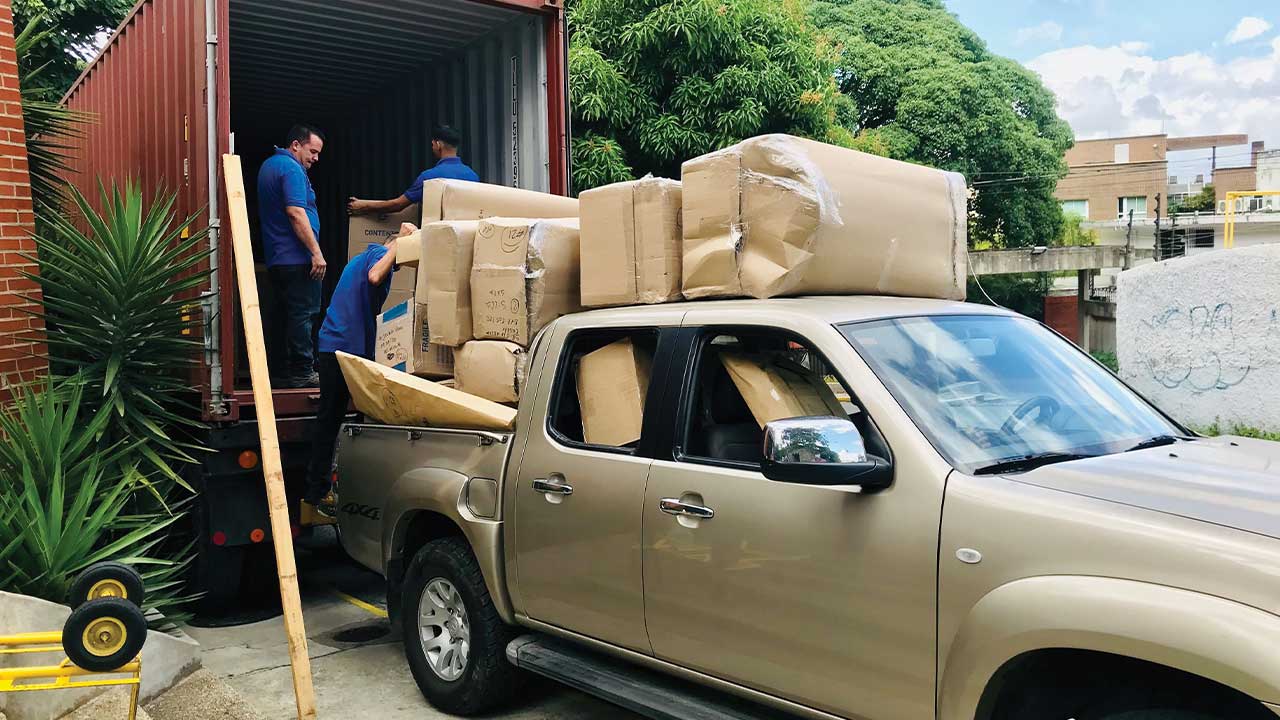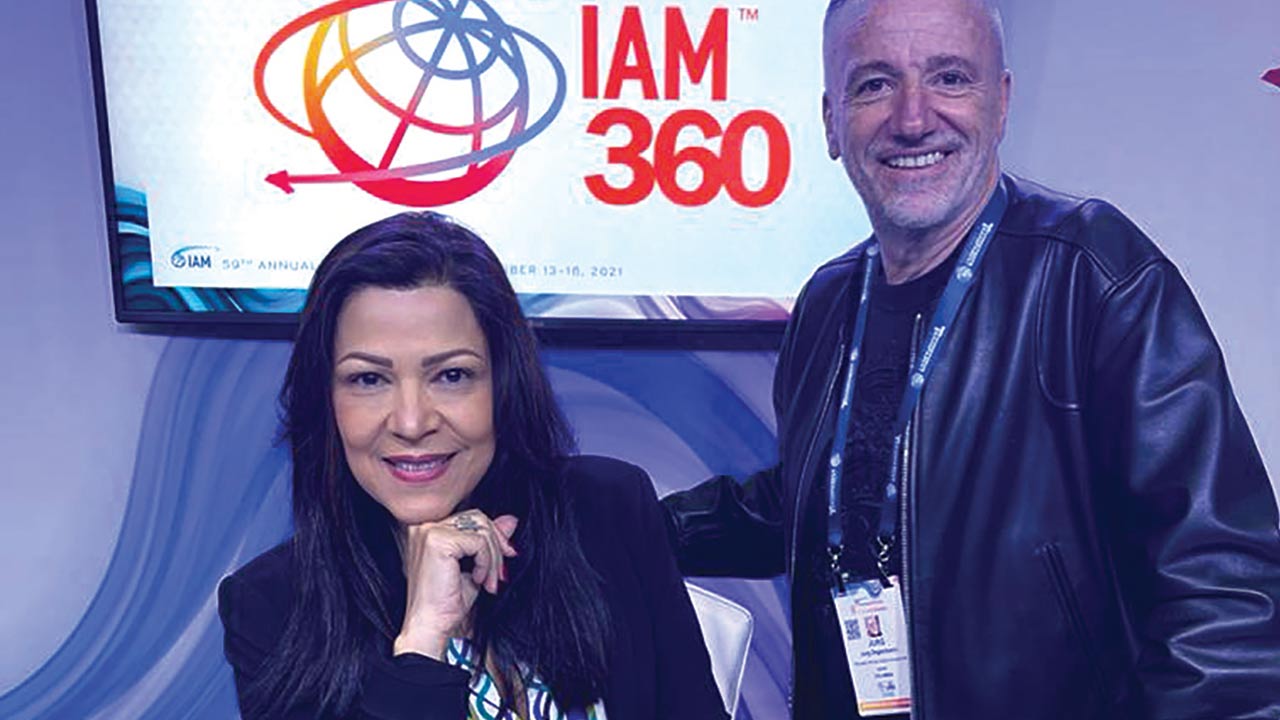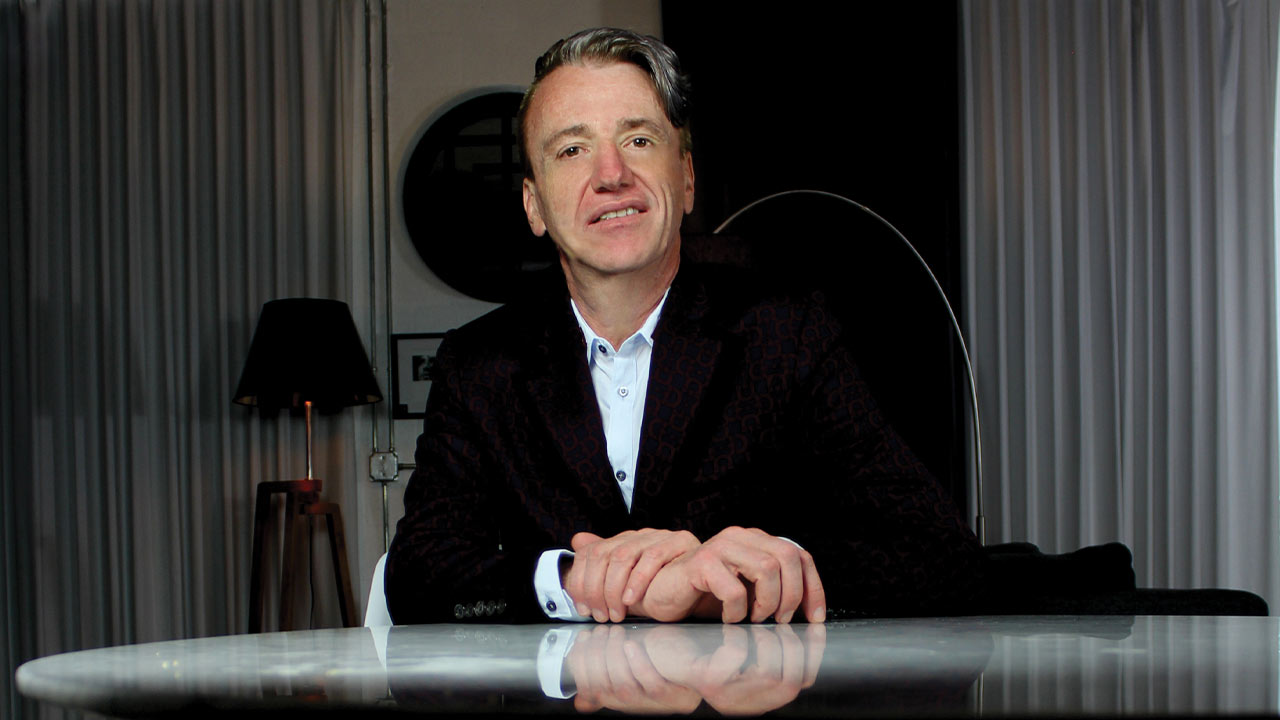Working in one of the most challenging moving markets in the world, Juerg Degenmann, head of Mudanzas Internacionales Global in Venezuela, has been faced with everything from worker strikes and raw material shortages to threats of extortion and kidnapping. However, after more than two decades at the helm of the company, he is still as passionate as ever about his work, staff and the tests that come with working in the country’s moving business. Dominic Weaver reports
When Juerg Degenmann, head of Mudanzas Internacionales Global in Venezuela, spoke to FIDI Focus in 2015, there was trouble afoot in the country’s moving business. After years of political turmoil, many large corporations and private families with second passports had moved away, and relocations had withered to a fraction of what they once were. He signed off the interview saying ‘I can’t see a future…’
Today, speaking from his office in Bogotá – where he established a partner business to Global four years ago – his bullishness about the Venezuelan industry is back. Global was involved in moving both the embassies of the US and Brazil when they left the country (in 2019 and 2020, respectively), which created ‘huge business’, for the company; and, although these and larger corporate moves are generally few and far between now, Degenmann says recent activity suggests the government is again looking to encourage inward investment in business, including Venezuela’s once powerful oil industry.
‘I think it understands it needs the help of foreign companies and is looking for joint ventures with oil companies,’ he says. ‘Every week, we are getting requests connected to the oil business, so I think there is something going on. I think we will have a lot of inbound business again.’
As it stands, Degenmann says inbound moves are only one fifth of the level they were a decade ago. However, these are clearly rising.
‘Many Venezuelans who had left for other countries are coming back now because the situation abroad is not easy,’ he says. ‘In Europe and the United States it is difficult, and many people are coming back; some left five years ago with a million dollars and they are coming back today with $10k.’ These return moves can be complex, he adds, with the transferees often frustrated by having to start their lives again.
‘A bit of everything’
These are part of the new mix of jobs that Global is taking on. ‘Today, we do a bit of everything, including moves of one cubic metre,’ he says. ‘We do a lot of groupage to Europe and monthly to the US, up to New York, Atlanta, Houston and so on,’ says Degenmann.

There is still ongoing work for embassies, but typically far less per country, of one or two moves a year – compared with up to 20 moves a year for the Germany embassy, previously, for example. Expats who remain abroad are also using the company to ship the possessions of deceased relatives out of Venezuela. The company’s good reputation helps generate ongoing word-of-mouth business and calls every day.
Scaling the business back during the country’s economic contraction, from more than 100 employees beforehand to 29 today, was a challenge. ‘
It’s easy to grow – you hire a new warehouse, hire a new office, hire new trucks – but it’s very difficult to downsize,’ he says, ‘but I think we did it the right way. We had so many moves 10 years ago, but this isn’t the case any more, so downsizing was the only way to survive.’
A Colombian venture
Four years ago, Degenmann set up Relocation Services Global Colombia, a partner to the Venezuelan business, in which it has a 60 per cent stake. This helped the business spread its risk and channel its existing resources (including Degenmann himself) and expertise better.
‘We decided with the shareholders to do something else, and Colombia was top of the list because we know the market well,’ he says. ‘We have done many moves in the past to Colombia and while there are many competitors, I think there are possibilities for everybody.’
He is now based in the country, managing the new business and commuting to Venezuela every few weeks to spend a few days with the team there, keeping in touch with General Manager Zenaida Romero and other staff with regular video calls.
This process has been made all the easier by the company’s experience with COVID-19, which, he says, taught the business to work remotely, and also saved money by stimulating a move out of its city centre office into one located in the company warehouse.
Global Colombia was established with a lean structure, too, with seven office staff, three packers, with other workers subcontracted as needed. The company recently became a member of OMNI and LACMA and is now working on its FIDI accreditation.
‘It has gone well here in Colombia – I can’t complain,’ says Degenmann. ‘We have a very good reputation with our agents and I’m happy with the results.’
Back in Venezuela, times got particularly tough around 2017 and 2018, when the real impact of the previous years’ exodus was felt with shortages of food and raw materials. However, says Degenmann, today there is a clear feeling that the country is back on its feet once again.
‘Today, you can find everything in Venezuela,’ he says. ‘There are new restaurants, new business and money. People are doing their best to live here now, it’s good.’
Where it all started
Degenmann was born in Bern, Switzerland. After attending high school in the country, he left to study in Philadelphia, US, where he met a woman who was his introduction to Latin American life.
‘At first, I thought she was North American, but she turned out to be Venezuelan,’ he said, ‘I went to the country, and we married and had kids.’
And he hasn’t looked back and, although he returns regularly to Switzerland to visit his mother and brothers, he is always happy to return to Latin America.
Degenmann’s first job in the region was with Swiss-run Canon Business Machines, which he did until 1998, when he was on the sharp end of a badly executed move. ‘At the time, I was working in Bogotá for Canon and I moved back to Venezuela. It was quite a big shipment and it was a disaster,’ he says.
‘Everything arrived broken, and I said never again – if I move internationally again I will sell all my stuff and buy new things in the new place.’
An upset customer
The experience stood him in good stead when, just three months later, he joined Mudanzas Internacionales Global. ‘I had no idea about the industry,’ he says, ‘but started in the business as an upset customer.’
Degenmann was brought into the business as sales manager for his languages – including English, French, German, a hybrid German/French Swiss dialect and Spanish – as well as his contacts in the expat community. He soon discovered that the company was in ‘very bad shape’ and needed urgent change. ‘We had 150 employees, with a huge payroll and not too many moves,’ he says.

He became General Manager of the company shortly after, and many people left. ‘They were not happy with me as the GM,’ says Degenmann, ‘but I got the support from one of the shareholders, Edgar Hantusch, who really helped me and taught me about the business.’
His learning continued – and Degenmann says it took two years before he really understood the moving business and started to turn to the company around. This, of course, coincided with more than a decade of upheaval in the country, which, although traumatic, brought a lot of business for movers. ‘I was the right person at the right moment in the right place,’ he says.
He has worked for the company since then, developing a deep connection with the business and its people, some of whom were at the company when Degenmann first took over.
‘For me, Global is my child. I love this company and I grew up with it. And I love my staff. When there is something bad going on in Venezuela, I suffer with them,’ he says. ‘I feel a lot for this company, and I cannot imagine working for another.’
He adds that the loyalty goes both ways. ‘I’m 100 per cent sure I can count on all our people,’ he says. ‘They’re all behind us; and that makes me very happy.’
Indeed, it is the contact with others – at home and internationally – that has, over the past two decades, changed Degenmann from the shy Swiss-born man who first came to Venezuela into someone with a typically Latin outlook. ‘I’m open-minded,’ he says, ‘I see the world totally differently now.
And in this business you make friends all over the world, true friendships. I have at least one friend in every country of the world, and this is priceless for me.’
This attitude of openness, says Degenmann, has won respect from the business’s competition. He is very used to collaborating in the sector and counts many of his competitors as friends.
The worst of times
Even at the best of times, Venezuela is a challenging place. Like many people running businesses there, Degenmann has experienced severe challenges, including threats of extortion and kidnapping made towards him and his family, the company and its clients, particularly between 2008 and 2012.
‘There was a lot of crime going on and we have moved families many times where, on Sunday for example, the father was kidnapped, and on Monday we got a call where they’ve asked us to move the family out,’ he says. ‘It was heartbreaking to see families losing a member and falling apart because of crime. And this happened several times.’
And besides these extreme examples, working in the country can often mean negotiating gas or electricity cuts, shortages of food, water and other essentials, worker strikes and ongoing political turmoil affecting the ability to ship in and out of the country.
‘Working in Venezuela is like facing a wounded bull; you don’t know from what side it is going to attack you,’ says Degenmann.
Nevertheless, there are also opportunities that arise from the chaos. This includes picking up all the moves for multinational energy supplier ConocoPhillips as it left the country following petrol strikes. ‘This was a huge compliment for us, and shows you cannot sleep in this business,’ he says.
‘You have to be awake and alert.’
A fascinating business
After 23 years, Degenmann is philosophical about the natural ebbs and flows of work that come in Venezuela. ‘I’ve learned that if we lose an account today, we can recover it tomorrow. We’re all working under the same conditions and, of course, something can go wrong. But mostly if the works goes it will also come back. It’s a cycle,’ he says.
‘It’s a fascinating business. You love it, or you hate it – there’s no in-between. And, after a few years, you just cannot leave.’
He feels the same about his long-adopted country. ‘If you know you can work in Venezuela, you know you can work anywhere,’ he says. ‘If I could choose the place I would want to die it would be here. You have the best people, the best weather, the best climate. I love the Venezuelans, they are such nice people. And, for me, that is so important.’

